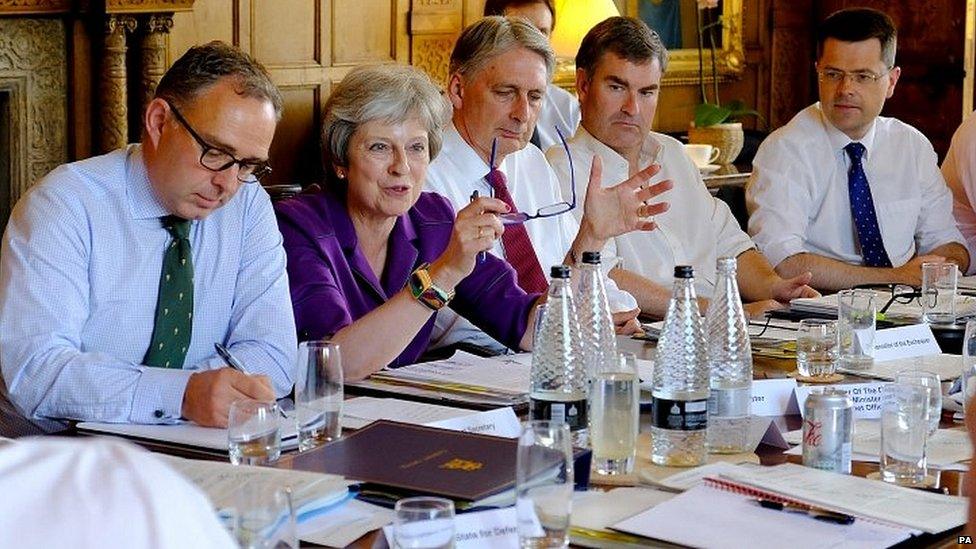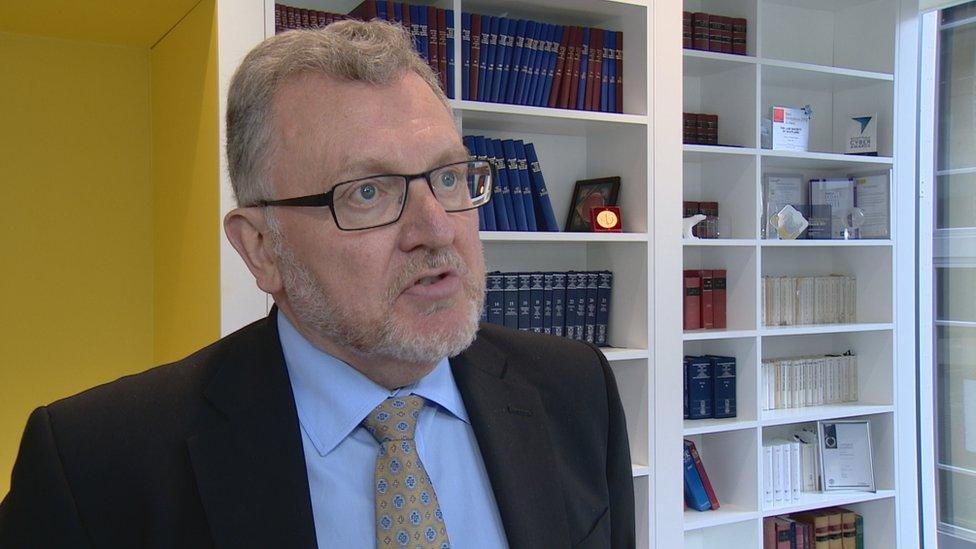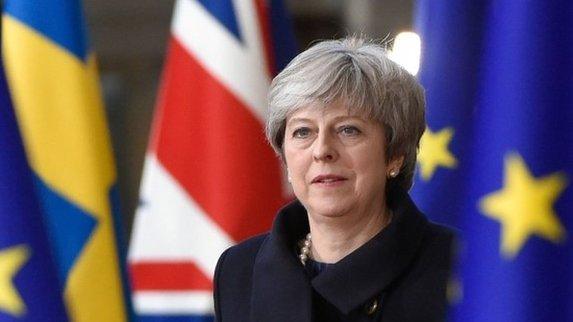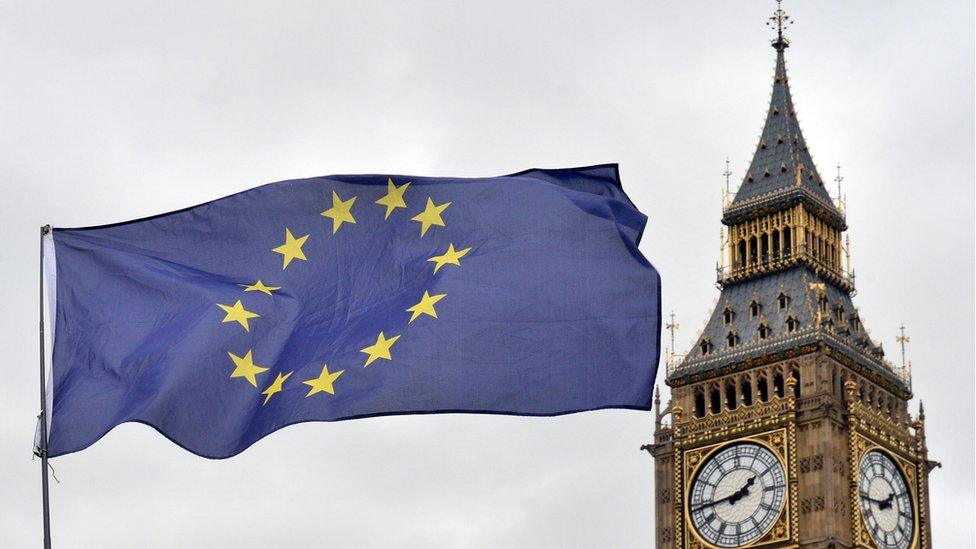Brexit White Paper 'falls far short of what Scotland needs'
- Published

Fiona Hyslop said the White Paper was "inching towards" backing single market membership, but doesn't go far enough
The UK government's Brexit blueprint "falls far short of what Scotland needs", External Affairs Secretary Fiona Hyslop has said.
Theresa May said the plan in the White Paper published on Thursday "delivers on the Brexit people voted for".
However it has been attacked by Brexiteer members of her own party, as well as by opposition MPs.
The Scottish government said Mrs May's plans were "not satisfactory", calling for full single market membership.
The White Paper, external fleshes out the negotiating position agreed by Mrs May's cabinet after a meeting at her country residence, Chequers, last Friday.
New Brexit Secretary Dominic Raab told MPs that it was the blueprint for a "principled, pragmatic and ambitious future partnership between the UK and the EU".
The proposal, which will need to win the backing of European leaders as well as of MPs, would see the UK "maintain a common rulebook for all goods" with the EU after Brexit.
It would set up a "joint institutional framework" to interpret UK-EU agreements, and treat the borders between the two as a "combined customs territory".
It would also end free movement of people, and give the UK an independent trade policy and end annual payments into the EU budget.
'Nothing satisfactory'
Ms Hyslop said the Scottish government would need to "study" the paper in detail, but said there were "clear concerns" about some provisions, such as the lack of detail over the services industry.
She said: "There's nothing satisfactory about leaving the EU, and this document falls far short of what Scotland needs, and it falls short of what our economy needs.
"It's inching towards recognition of the importance of the single market and customs union, but surely membership of the single market and customs union would meet the needs of Scotland and the UK.
"It is not satisfactory, and much more needs to be done to make sure its in a better position, but of course there's only weeks to go. There's perhaps still a moment where the UK can come to its senses and realise that single market and customs union membership is the right way forward.
"The stark reality is that Scotland's economy will suffer, our jobs will be depleted, if we leave the single market."

The proposals were approved by cabinet last Friday but soon led to a big political fallout
There was some welcome for the paper from business groups.
Tracy Black, director of the Confederation of British Industry in Scotland, said the "direction" of the paper was "welcome".
She said: "Many of the intentions are reassuring. Seeking a free trade area for goods and a common rule book shows the prime minister has put pragmatism before politics and should be applauded.
"Businesses on both sides have been asking for frictionless trade between the UK and EU, and shared rules could go a long way towards delivering that. It is now the EU's turn to put economics before ideology on these proposals."
'Vassal state'
The proposals have opened up splits in the Conservative Party, with David Davis and Boris Johnson resigning as Brexit secretary and foreign secretary respectively over it.
Other Tory backbenchers have also spoken out, with Jacob Rees-Mogg saying the White Paper was "a bad deal for Britain".
Aberdeen South MP Ross Thomson said he was "proud" of Mr Davis and Mr Johnson saying he was "deeply concerned" by plans would could leave the UK "a vassal state".
In a podcast for the Brexit Central website, he added that if changes were not made to the plans, Tories would be "screwed" in the next general election.

David Mundell said he hoped MPs would back the bill
Scottish Secretary David Mundell told BBC Scotland that he wanted people and MPs to "rally round" the government's position.
He said: "I understand that people won't all agree, people have very strong views on the Brexit issue.
"But we need to reach an agreed position, and that's what this is, to take into the negotiations to make the case for the EU that we can leave on the basis that we want to leave, but that we can also have this continuing relationship, particularly for the benefit of Scottish and British businesses."
The Scottish Secretary said he would rather MPs were focused on selling the deal to European leaders.
He said: "I hope that people in parliament will support it, once we have agreement from the EU. This is our position, and the next stage is to get agreement from the EU.
"I would far rather the focus of everybody's efforts was on getting that agreement. We've got 27 member countries to get agreement with, and that's the important thing now."
- Published13 July 2018

- Published7 July 2018
